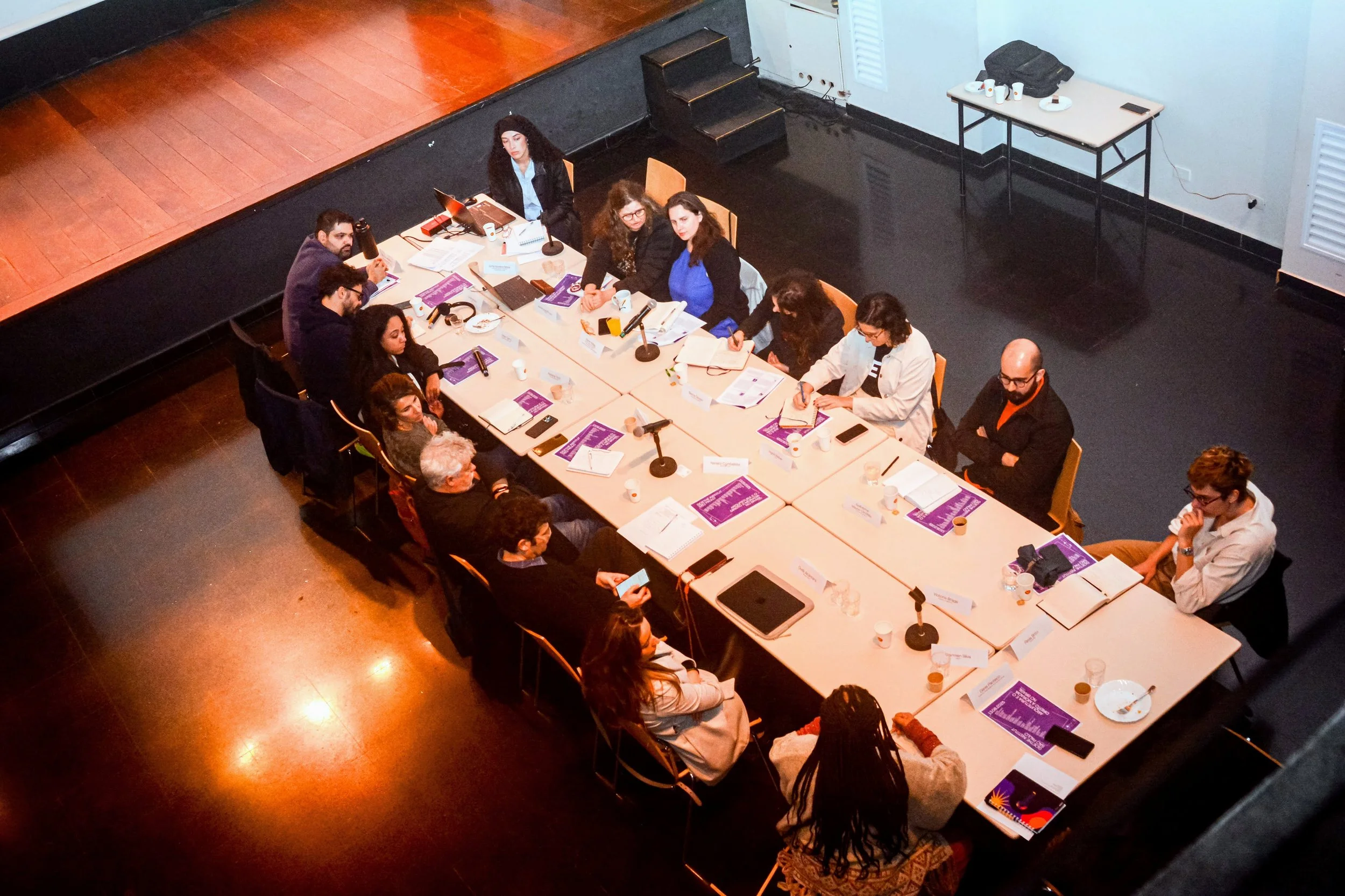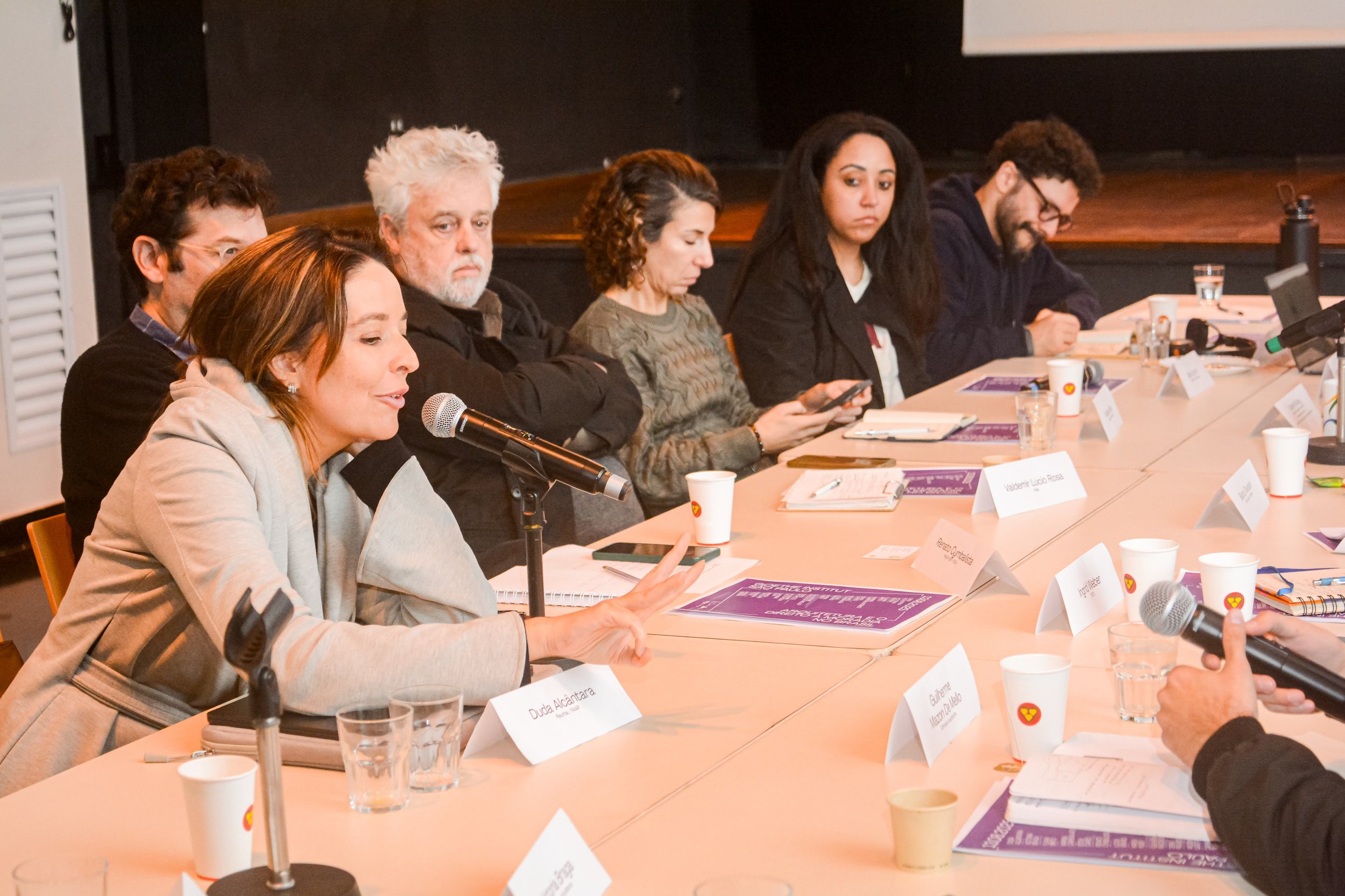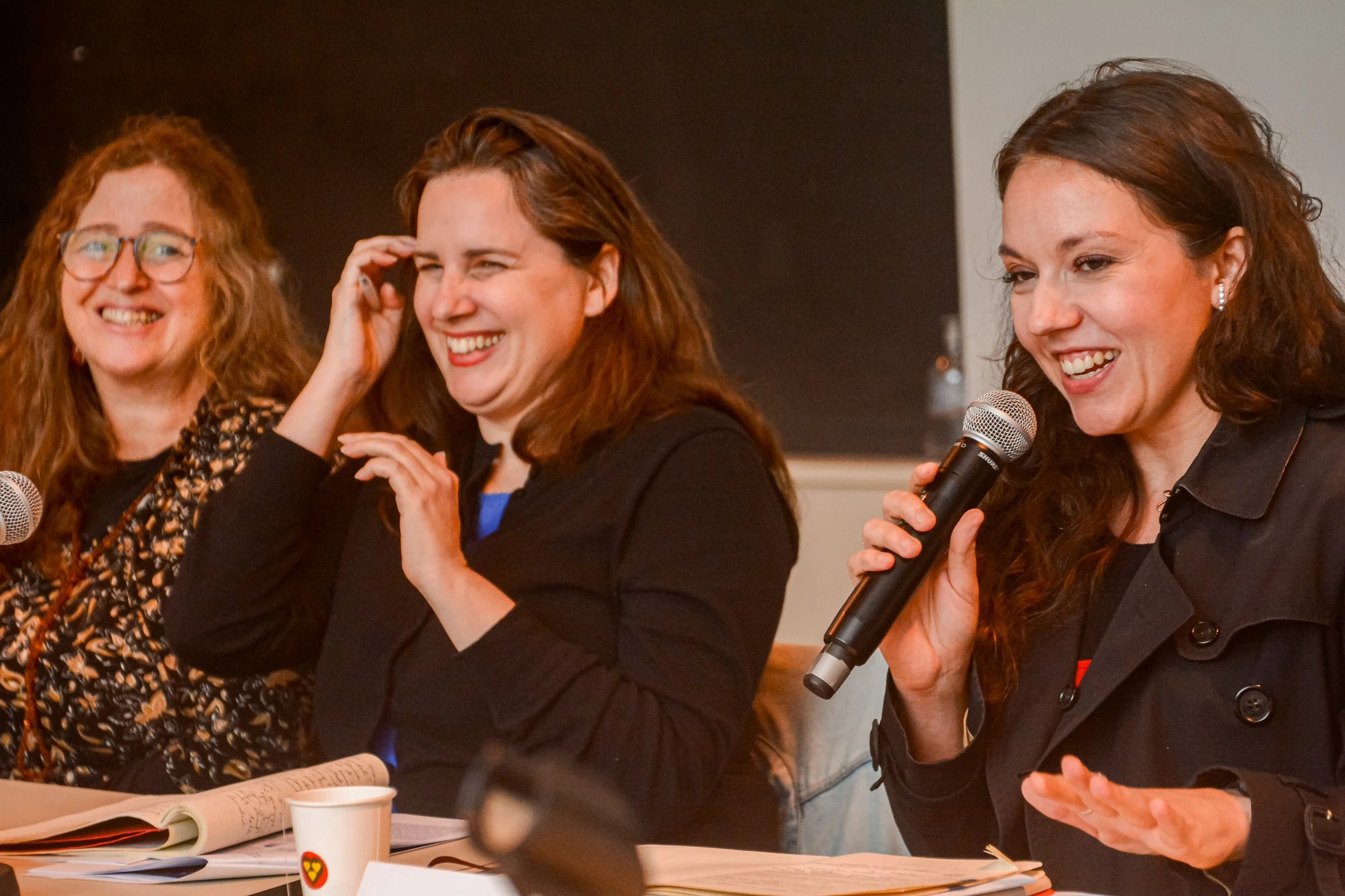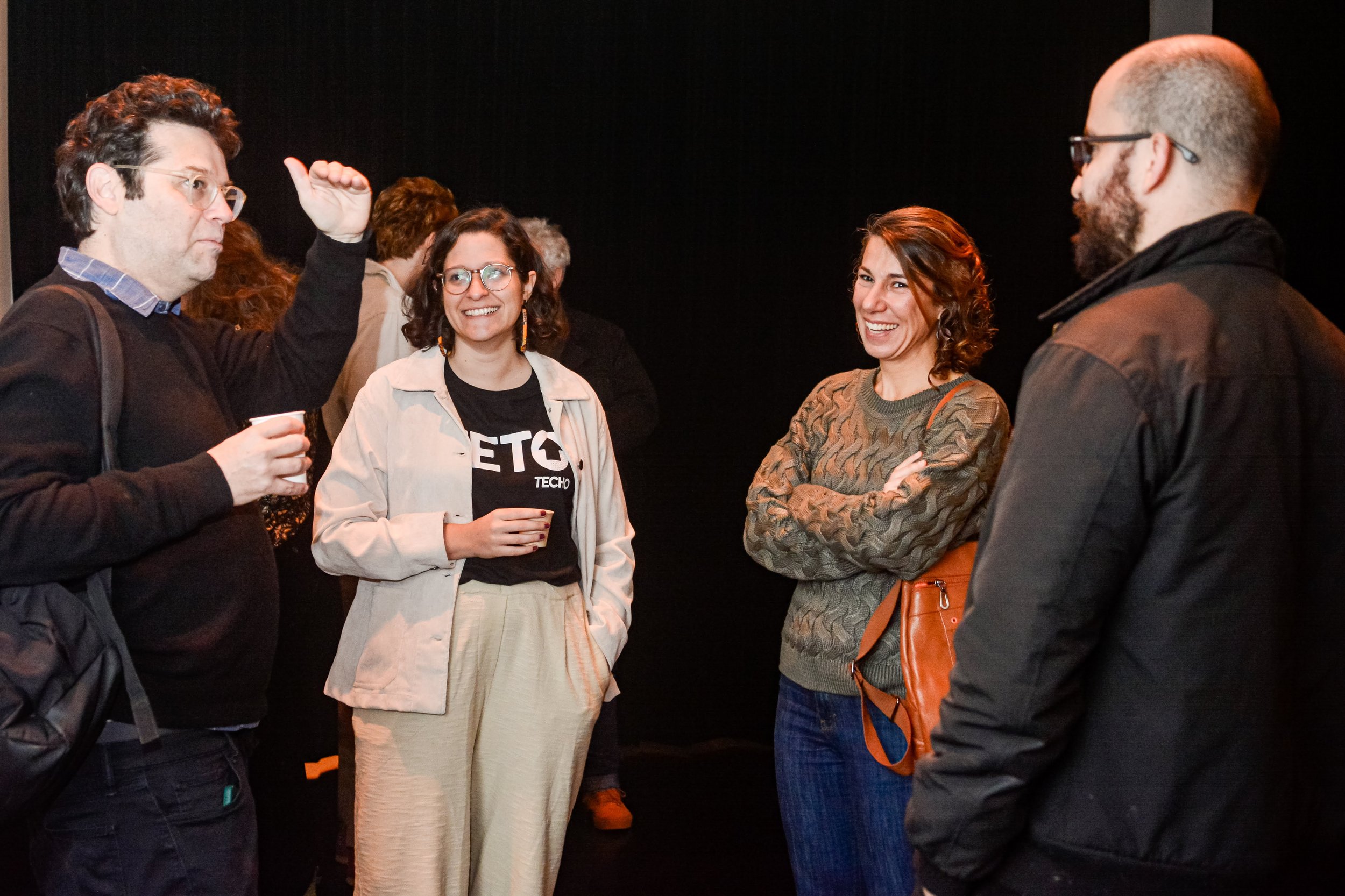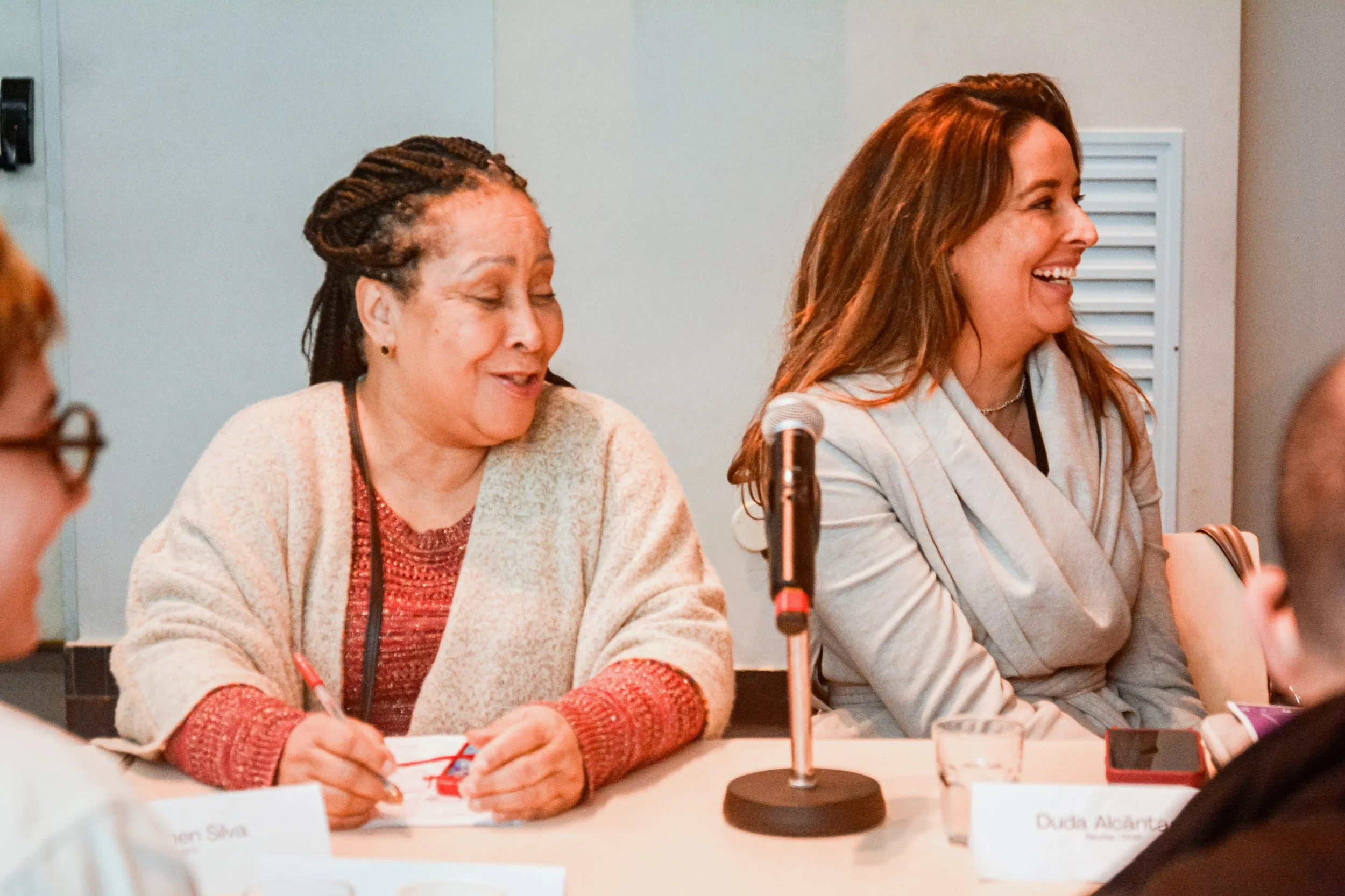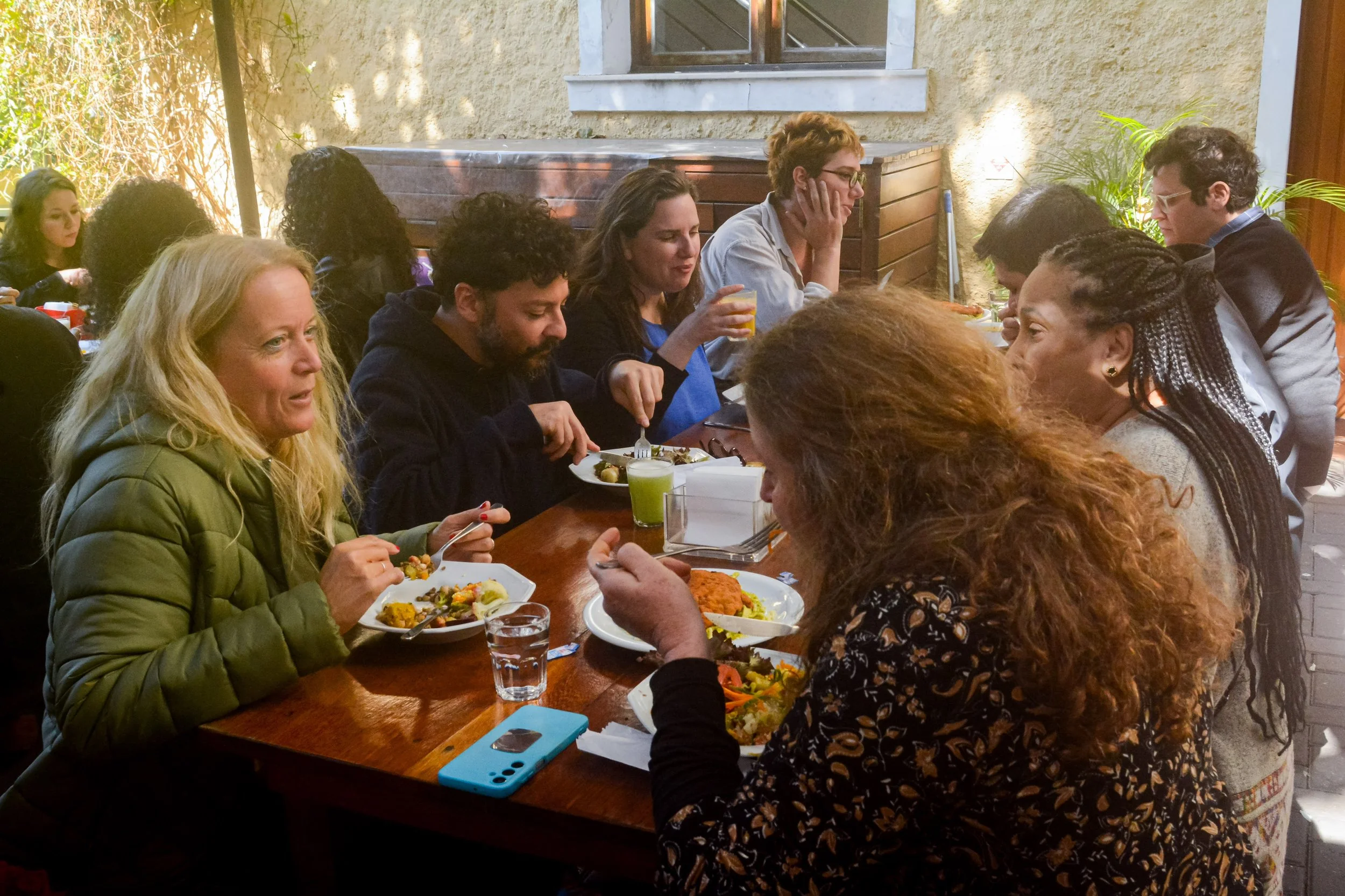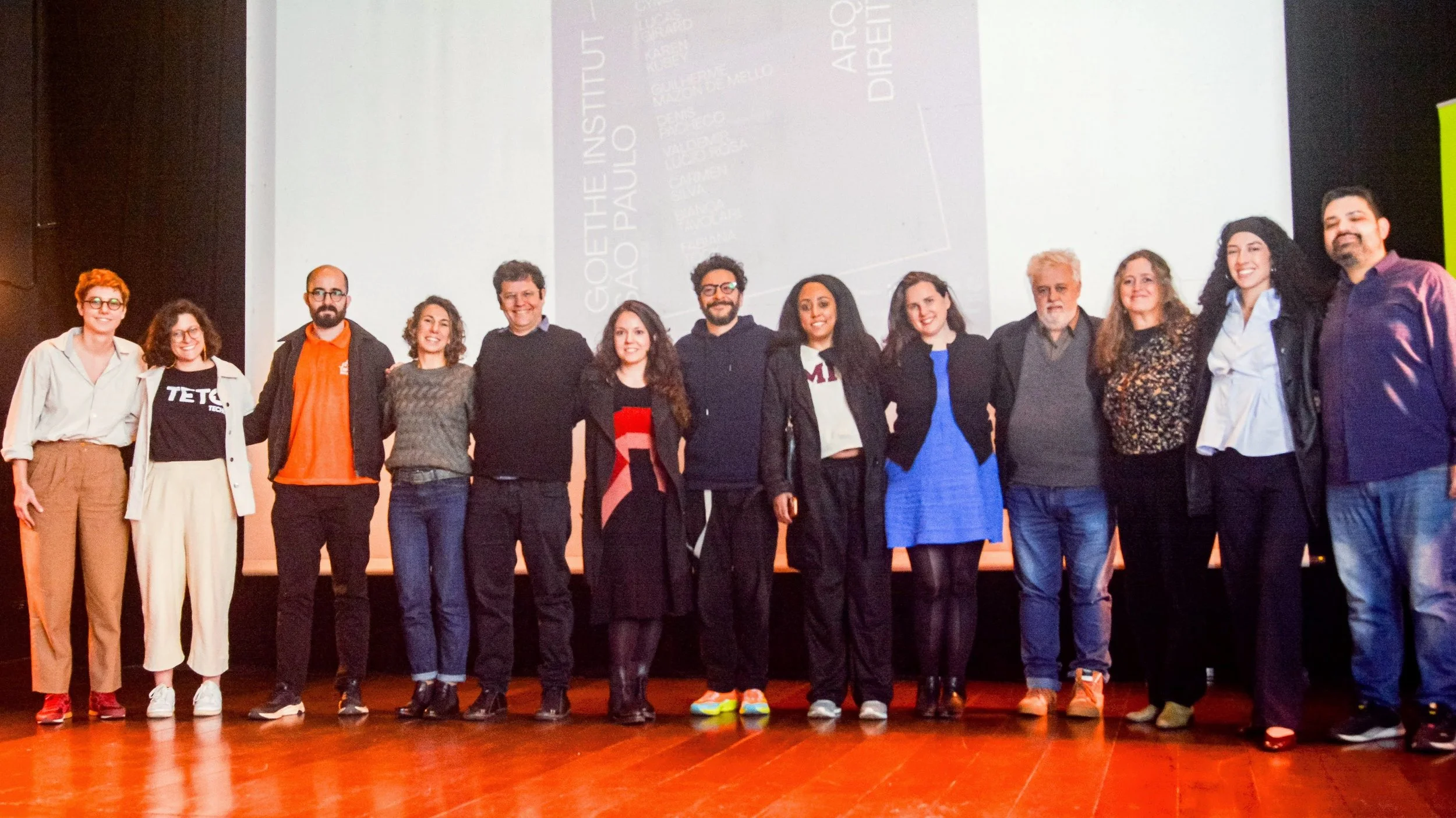Private Workshop: Architecture and the Right to Housing in Brazil
Goethe Institut, São Paulo, Brazil | August 13, 2025
The right to housing—globally and in Brazil—is a political, legal, and economic issue. It is also an architectural one. What does the right to housing mean in practice? How can designers contribute?
This intimate gathering brought together housing advocates, architects, and academics. Short talks connecting research and practice opened into a facilitated discussion around a shared meal. The proceedings, conducted in Portuguese and English, were recorded and transcribed, and will be translated for future publication in Untapped.
Our goal is to work collaboratively to envision what the right to housing would look like in Brazil, and how architects might contribute. In this meeting, we addressed three topics that we understood as groundbreaking issues in the debate:
Architects as developers and stewards of buildings. In recent years, some projects were developed in which architects not only designed, but also owned, cared for, and maintained buildings.
Architects as improvers. New approaches emerged in the so-called melhorias habitacionais (housing improvements), interventions at the micro-scale of precarious buildings, often in favelas or peripheries.
Architects as curators of heritage social housing buildings. Historic social housing began to be recognized as one dimension of heritage, and architects learned new ways of working with these buildings.
The convening surfaced urgent questions and promising examples, and laid the groundwork for future collaboration.
This event was convened by the Faculty of Architecture, Urbanism, and Design at the University of São Paulo (FAUD-USP), Real Estate Community Fund (FICA) and Architecture and Housing Justice Lab. It was held at the Goethe Institut and was made possible through the generous support of the Canadian Social Sciences and Humanities Research Council (SSHRC), Irving Grossman Fund in Affordable Housing, FAUD-USP, FICA, the Goethe Institut, and Untapped.
Photos by Guilherme Assano.
